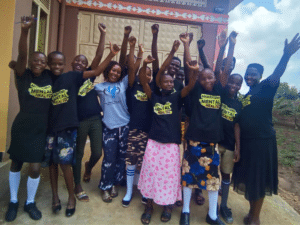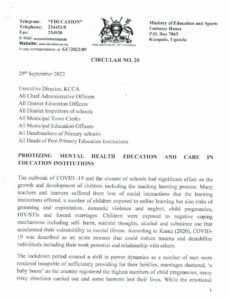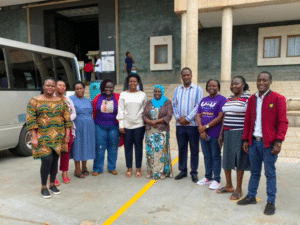StrongMinds Uganda and Ministry of Education Join Forces to Prioritize Adolescent Mental Health in Schools

Uganda’s Ministry of Education and Sports (MoES) circulated guidelines instructing all academic institutions to implement mental health programming in schools on October 5.
The milestone comes after continuous ministry liaison with StrongMinds teams urging officials to place adolescent mental health higher on Uganda’s national education agenda.
Under new procedures, institutions must begin implementing at least one hour of basic counseling and psychosocial support each week. At a minimum, 1% of institutional funds should go to delivering specialized mental health services, and schools are to partner with local providers to ensure all members’ mental well-being.
The ministry also recommends teletherapy to tackle depression among staff and students, with StrongMinds Uganda listed in the circular as a suggested toll-free service.
Since most mental health conditions develop by adolescence, the mental well-being of this age group must be valued, promoted, and protected across sectors.
“We have learned from countless experiences that many suicide cases are happening among school-going children, and this is an indication that the systems in place to support them are insufficient,” said Head of Programs at StrongMinds, Vincent Mujune.

The coronavirus (COVID-19) outbreak recently highlighted the importance of prioritizing this subject even more due to the countless short-and long-term stresses students experienced during lockdowns. Fear and isolation exacerbated pre-existing conditions for many, while stressors and grief introduced new disorders.
Consequences of public health emergencies, like COVID-19, can be long-lasting for adolescents on top of the difficulties they already face during this critical development phase.
“We know that as children grow up, they face many challenges influenced by several environmental, biological, and social factors,” said StrongMinds Adolescent Program Coordinator, Rebecca Namuli.
“These influences can expose children to getting mental health disorders, such as depression, and some of these disorders can start as early as before the age of 14.”
Policies that protect adolescent mental health are critical to assisting this vulnerable age group in receiving early intervention and prevention programming.
But until Dr. Ismael Mulinda signed this written statement earlier this month, plans to defend young people’s mental health in Uganda’s education systems were lacking.

According to the World Health Organization (WHO), school-based social and emotional learning programs are among the most effective strategies for promoting and protecting mental health.
StrongMinds has observed this first-hand through its educator training program, which instructs teachers to lead group interpersonal psychotherapy (IPT-G) for adolescent students in Ugandan schools.
Students not only report a decrease in depressive episodes post-treatment but also benefit from improved problem-solving skills, enhanced school performance, and relationships among family members once sessions conclude.
There is still much to be done when it comes to the safeguarding of children’s mental health across stakeholders and government sectors. However, the Ministry of Education and Sports’ most recent announcement is a huge step in the right direction.
StrongMinds will continue to engage in cross-sector collaboration until all children and adolescents receive the mental health opportunities to thrive.
